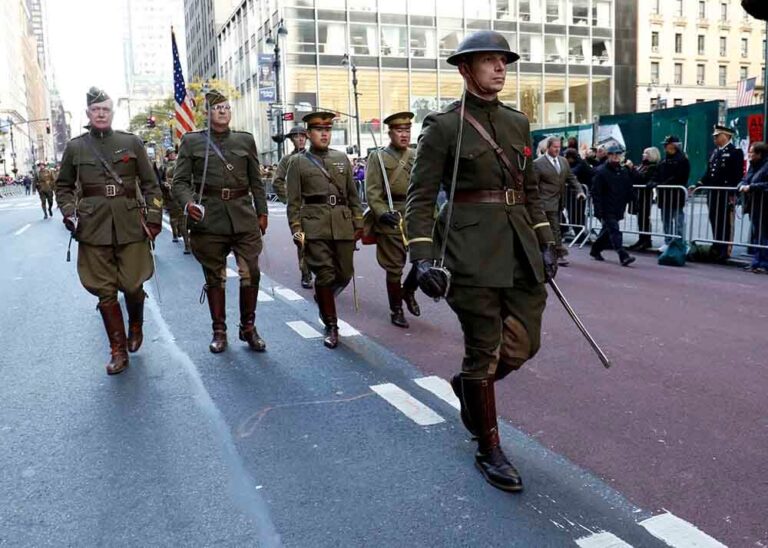I’m just old enough to remember when my elders still called Nov. 11 “Armistice Day:” the armistice in question that which stopped the shooting in the Great War. As a military matter, World War I may have ended a century ago, on Nov. 11, 1918, allowing my Grandfather Weigel and millions of other doughboys to be demobilized. The devastating cultural effects of the Great War are still being felt today, though.
Different nationalities remember World War I differently. Nostalgics mourn the fall the Romanov, Hohenzollern and Hapsburg empires; Poles remember those as the imperial crack-ups that permitted them to regain independent statehood. France is, in some respects, still paralyzed by the memory of the Great War. (Look online at images of the inside of the Douaumont Ossuary near Verdun to understand why.) Canadians wear red poppies in their lapels to honor the dead at Vimy Ridge and elsewhere. Australians remember Gallipoli as the crucible in which their nation was formed. Satisfaction in the U.K. over a hard-won victory is severely tempered by the knowledge that virtually an entire generation of future British leaders was killed between 1914 and 1918.
No one has ever assayed the primary cause and long-term effects of the Great War better than Aleksandr Solzhenitsyn did in his 1983 Templeton Prize Lecture, “Men Have Forgotten God.” There, he argued that the 1914-18 war was the result of a collapse of moral imagination rooted in a practical atheism:
“The failings of human consciousness, deprived of its divine dimension, have been a determining factor in all the major crimes of this century. The first of these was World War I, and much of our present predicament can be traced back to it. That war…took place when Europe, bursting with health and abundance, fell into a rage of self-mutilation that could not but sap its strength for a century or more, and perhaps forever. The only possible explanation for this war is a mental eclipse among the leaders of Europe due to their lost awareness of a Supreme Power over them.”
In a 2014 essay, “The Great War Revisited: Why It Began, Why It Continued, and What That Means for Today” (reprinted in my book, The Fragility of Order), I surveyed the extensive literature on why World War I started, then asked an even more urgent question: Why did it continue, after it was clear that there would be no quick victory for anyone, only more industrial-strength slaughter? I ended that reflection on a note similar to Solzhenitsyn’s: there is no explaining this act of civilizational self-destruction absent a reckoning with the demise of biblical religion in the West. By 1914, Western high culture had come to think that it could organize the world without God: which was, in a sense, true. But what the Great War should have taught the West was that, without the God of the Bible, the only way the peoples of the West could organize things was against each other — and in the most sanguinary terms.
Three enduring impacts of World War I are worth flagging on this centenary.
The Great War destroyed Western confidence in traditional authorities and bred a deep skepticism of, and even contempt for, “the great and the good” that remains a factor in our public life.
The Great War eviscerated traditional cultural norms and boundaries, accelerated the development of the avant-garde, and stripped art in the West of its moral ballast; “art” became, in the main, a vehicle for expressing subjective feelings and passions, rather than an exploration of truths.
The Great War also deepened and intensified the secularization of the West, as one religious leader after another joined the parade of homicidal nationalists, jingoes, and social Darwinists whose bombastic appeals to base (and often racist) emotions helped preclude a negotiated settlement before the collapse of Romanov Russia and the exhaustion of imperial Germany made the Armistice inevitable.
One notable exception to this massive default in religious leadership was Pope Benedict XV, the most understudied and underrated pontiff of the 20th century. Had he been listened to by the great powers of the day, things might have been different. But Benedict was dismissed as an irrelevance, the carnage continued, and the question posed by Solzhenitsyn 35 years ago — Did World War I terminally sap the strength of Europe? — remains an open one today.


